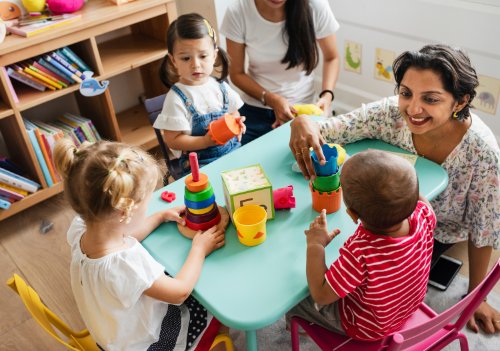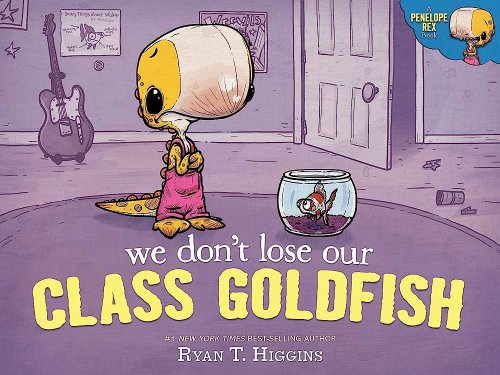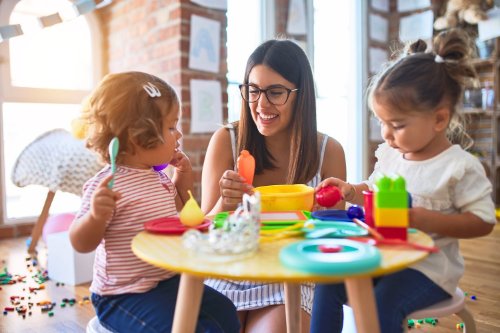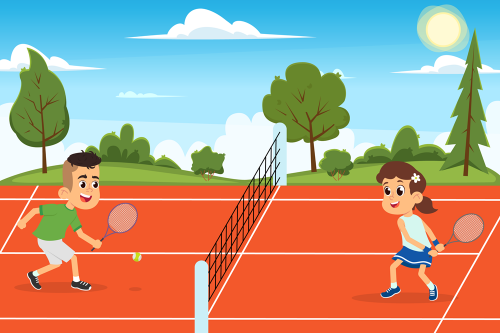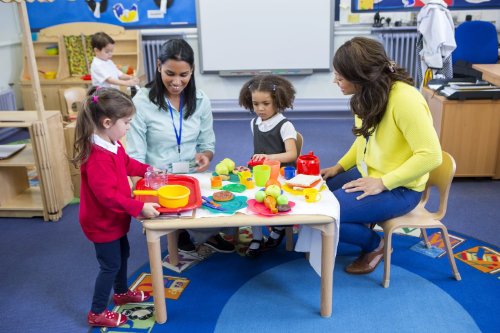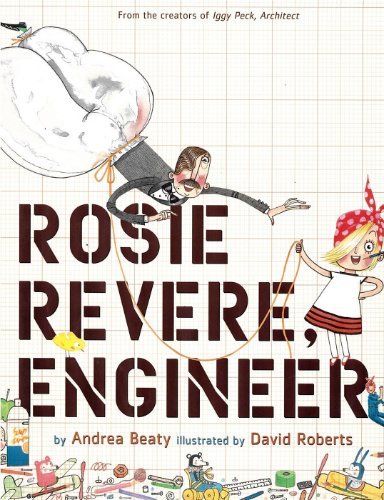Book Reading Checklist for Parents
September 04, 2023
Did you know that the way you share books with your child can make a big difference in how well they learn early literacy skills? Use this book reading checklist to take a closer look at how you’ve been sharing books with your child and what other things you might do to maximize your child's learning.
Book Reading Checklist for Educators
September 01, 2023
Did you know that the way you share books with young children can make a big difference in how well they learn early literacy skills? Use this book reading checklist to take a closer look at how you’ve been sharing books with children and what other things you might do to maximize their learning.
What Stands in the Way of Successful Peer Play?
August 24, 2023
We asked professionals who work in early childhood settings what common challenges they face when encouraging children to interact. Here are the top concerns they expressed, along with some thoughts from our Director of Early Childhood Education, Helen Livshits.
Building Story Comprehension with We Don’t Lose Our Class Goldfish
August 24, 2023
With back-to-school just around the corner for many, it’s a perfect time to share this fun story featuring Penelope the T-Rex and the classroom pet, Walter. Here are some tips for using this book to build children’s understanding of story structure – an important first step in story comprehension.
Connection in the Classroom
August 22, 2023
In a busy classroom, what does it take to engage children with diverse abilities in meaningful interactions? Answering this question was an overarching goal of a recent Learning Language and Loving It™ Program.
What Do Communication and Tennis Have in Common?
July 17, 2023
The next time you have a conversation with your child, think of it like a game – of tennis! Follow these pro tips to make the game successful and fun, and to give your child lots of opportunities to build communication skills.
Tips to Support Peer Play in Early Childhood Settings
July 09, 2023
Learn why peer play is so important in early childhood settings, and what you can do to support every child's opportunities to engage with other children.
How to Support Peer Interaction in Early Childhood Settings
June 22, 2023
When 3-5 year olds engage in peer play, they practice essential skills that help prepare them for school success. But when a child is consistently left out of interactions, they miss out on these important learning opportunities. Here are some practical tips to maximize peer play opportunities for all children in your classroom, but especially for those who need the most support.
Building Vocabulary with Rosie Revere, Engineer
June 22, 2023
Did you know that vocabulary is a key predictor of a child’s reading success? Children who understand more words become better readers! But just hearing new words isn’t enough to learn them. Use the tips in this Book Nook to highlight new words and help children understand their meanings.


